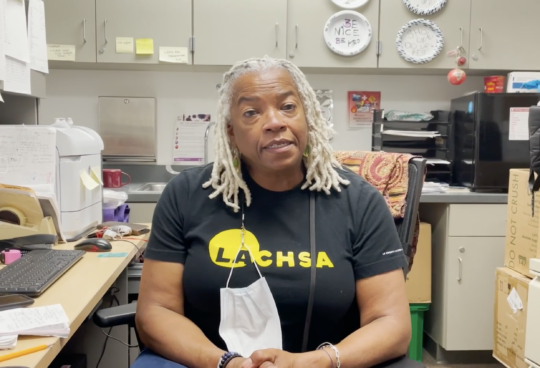Intel IQ: Eight Education Tech Startups Revolutionizing Learning
Plugged into Silicon Valley technology and funding, these education entrepreneurs are on a fast track to bring their innovations to more students and teachers.
For teenage girls, learning to code can lead to new skills and confidence. It's also an entry into the world of technology, according to the founders of Vidcode, a startup whose online software teaches young women how to edit video by changing the computer code itself.
Vidcode is one of eight education tech startups selected out of 200 global applicants to participate in the first Intel Education Accelerator program.
These companies are diverse but share a common goal: Use digital technologies to engage students and build the skills they need to be successful.
This is a brand new program open to K-12 and higher-ed startups, said John Galvin, vice president and the general manager of the Intel Education team.
Intel Capital is investing up to $100,000.
This is a way to move education-technology industries forward, faster said Galvin. It helps these entrepreneurs bring their ideas to students who can benefit from these new technologies.
Based in Redwood City, CA., the accelerator is a four-month program, where these eight early-stage startups learn through workshops and mentorship from educators, technology and industry leaders, said Galvin.
On December 2, each founder will deliver a five-minute pitch to venture capitalists and potential partners.
Here's a look at the eight education tech startups and the people behind them.
Computer Coding for Anyone
Instead of encouraging young women to embrace the existing electronics culture, which can be full of stigmas and stereotypes, Vidcode founders Mellissa Halfon and Alexandra Diracles are changing how young people perceive coding in the first place.
We have built a software that relates to teenagers' hobbies, said Diracles. These are key components to developing a long term passion for science, technology, engineering and math (STEM).
Men by far outnumber women working in the STEM fields. Diracles said that today only .8 percent of girls go on to study computer science in college, and this needs to change.
Back in 2004, Halfon was studying Computer Science at the University of Michigan, where she was one of only a few women in a sea of male students.
Twelve years later at a startup event in New York City, the software engineer met Diracles, a photographer, who shared the same desire to turn teen girls on to the wonders of JavaScript.
They created Vidcode, a computer application that teaches teens how to code by leading them to tell their own story via video. Teens use the app to adjust color and filters, essentially coding their video effects in JavaScript.
World of Sound for Students
ToneTree is another startup in the Intel Education Accelerator that creates Birch, an unassuming pocket-sized device that turns any flat surface into a musical instrument.
A desk can become a piano, and a bench can turn into a drum kit.
Founded by musicians, Birch gives people the ability to carry a world of sound in device that fits in a pocket. This low-cost technology can be used in place of larger, more expensive instruments.
On average, a music student will spend $600 on an instrument, said Max Escaler, ToneTree's CMO.
We are lowering that barrier not just for students, but for everyone.
By turning any surface into a musical instrument, Escaler said Birch gives teachers a new perspective on audiovisual learning. It allows students to hear music, but also see and feel it.
Homework Help On-Demand
Gotit! is a mobile phone app for students stumped by math problems. Students can snap and send a picture of an equation and get an on-demand tutor who walks them through an explanation.
Based in Menlo Park, Calif., Gotit! was founded by Hung Tran, who previously led an international effort to build an open courseware program for millions of college students in Vietnam. He created the parallel ranking, bidding and matching engine that powers Gotit!
Griti taps into an on-campus student network of subject experts to deliver college students fast, on-demand video assistance with coursework.
The San Francisco-based startup was co-founded by Stephen Broadbent, who believes today's college students are not reaching their academic potential simply because traditional support like office hours and tutoring are limited, or out of sync with how students learn today.
Griti's platform of instant streaming video anticipates students' needs instead of waiting for them to struggle before offering any help, says Broadbent.
On-the-Go Learning Platforms
The BeeLine Reader is a digital tool which snaps on a web browser to help young students and people with dyslexia and learning differences read more efficiently and effectively.
Instead of using monochrome print text, the Beeline reader displays an eye-guiding color gradient text which helps readers follow from one word to next without losing track of sentences.
Nick Lum founded BeeLine Reader in Woodside, CA.
WordsU is a New York City-based startup that created an app called WordsU that turns texting into the smartest way to learn outside the classroom.
Co-founder Sam Mendelson says WordsU replaces common words in text messages with advanced synonyms, teaching a user new vocabulary words in context of their lives.
Myriad Sensors, a Mountain View, CA. startup, makes a low-cost, wireless sensor called PocketLab.
The compact sensor measures parameters like acceleration and pressure. It connects to mobile phones or tablets and instantly streams measurement data similar to that of expensive lab equipment.
PocketLab helps students connect science concepts with real world experiments rather than using only equations. Founder Cliff Roozeboom says research shows students understand science better through hands-on activities.
WriteReader allows children as young as three years old to create and share their own digital storybooks. CEO Babar Baig says this motivates them to write and create at an early age, which leads to accelerated learning.
Based in Copenhagen Denmark, WriteReader is a successful product in its home country and is aiming to make its product equally successful in the U.S.
With the wide variety of apps and tools available, students continue to learn new skills, words and concepts using 21st Century technologies. These eight startups are just the beginning.
Editor's note: See highlights of the startups presenting their ideas during the Intel Education Accelerator event on December 2.

















